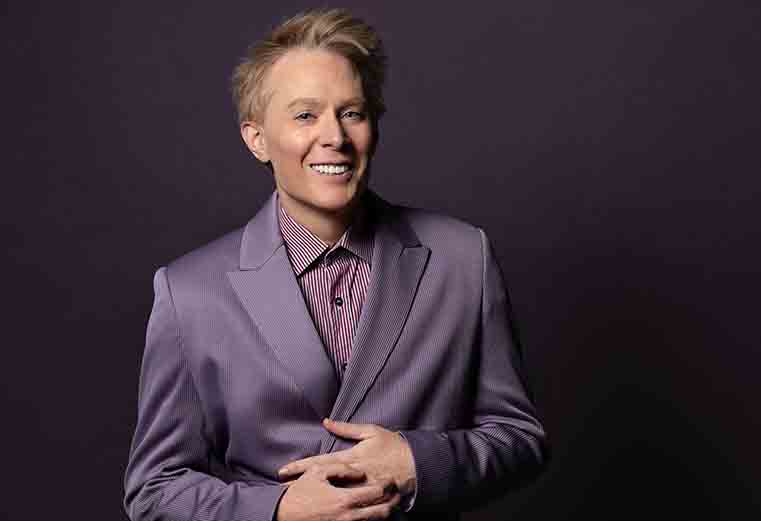In a recent interview, Clay Aiken, the beloved runner-up of “American Idol” Season 2, expressed his concerns regarding the judges’ lenient evaluation style in the show’s current format. Aiken believes that the overly supportive critiques fail to provide contestants with the necessary feedback to grow as artists. He argued that while encouragement is vital, it should not come at the cost of honest assessments that can push participants to elevate their performances. According to Aiken, this trend could be detrimental to the quality of music presented on the show and could hinder aspiring performers from truly understanding their strengths and weaknesses.
Aiken isn’t shy about detailing what he sees as the consequences of this soft approach. He pointed out several key issues that arise from it, including:
- Stagnation of Talent: Contestants may rest on their laurels rather than striving for improvement.
- Misleading Feedback: Overly positive critiques can lead artists to believe they are performing better than they actually are.
- Loss of Competitive Edge: The lack of constructive criticism can dilute the intensity and excitement that made “American Idol” a phenomenon.
Aiken’s remarks have resonated with many viewers who fondly remember the more rigorous judging style of previous seasons, where feedback was often blunt but ultimately helpful. As fans speculate on the potential changes to the judging panel in coming seasons, Aiken’s candid observations underscore a growing desire for a return to a more balanced approach to artistic evaluation.
The Impact of Fostering Mediocrity on Emerging Talent
The recent comments by Clay Aiken regarding the judges of American Idol shine a spotlight on a broader issue within talent competitions: the potential dangers of fostering mediocrity in emerging talent. Aiken’s critique highlights how an overly gentle approach from judges can lead to a detrimental ripple effect. By emphasizing politeness and concern over honest critiques, these influential figures risk stifling the growth and development of promising performers. This inadvertently creates an environment where aspiring artists may feel content with underwhelming performances, rather than pushing themselves to achieve their full potential.
When judges prioritize niceness over constructive feedback, they may inadvertently enable a culture that celebrates average performance at the expense of excellence. Such an environment can result in a generation of artists who lack the resilience and skills necessary to thrive in a competitive industry. The consequences are far-reaching, as audiences may grow accustomed to mediocrity, while the truly gifted individuals struggle to break through the noise. In the long run, the dynamics of talent evaluation should focus on cultivating strength and authenticity in performers, ensuring that the next wave of artists is equipped not just with praise but with the critical insights necessary for professional growth. Key components to focus on include:
- Constructive Critique: Encouraging judges to provide feedback that is both honest and kind.
- Performance Standards: Setting clear benchmarks for excellence that artists should strive for.
- Industry Realism: Preparing contestants for the tough realities of the entertainment world.

Recommendations for Striking the Right Balance in Talent Evaluation
Striking the right equilibrium in talent evaluation is essential, particularly in high-stakes environments like reality competition shows. As the debate heats up around the criticisms leveled by Clay Aiken regarding the gentle approach taken by judges on ”American Idol,” a deeper exploration of assessment methods is warranted. Judges play a pivotal role in shaping contestants’ careers and self-esteem, which calls for a careful blend of honesty and encouragement. To foster development while preparing contestants for the competitive nature of the industry, evaluators should consider the following:
- Constructive Criticism: Feedback should be specific and actionable, allowing participants to recognize areas for improvement without undermining their confidence.
- Emphasizing Strengths: Balancing critiques with acknowledgement of talent helps maintain morale and encourages growth.
- Realistic Expectations: It’s crucial for judges to set achievable goals for contestants, reinforcing the understanding that success requires hard work and persistence.
- Transparency: Openly communicating the criteria for evaluation helps contestants understand the rationale behind the judges’ decisions and prepares them for future performances.
In the entertainment industry, the demand for authenticity grows alongside audience expectations. As illustrated by Aiken’s remarks, the risk of becoming overly lenient can lead to missed opportunities for genuine talent discovery. Judges can find a middle ground by creating an atmosphere that encourages contestants to reveal their true potential while still remaining vigilant about the realities of performance. This balanced approach can enhance the integrity of the competition by:
- Promoting Growth Mindset: Encouraging a belief in the ability to develop and improve through effort fuels resilience among contestants.
- Fostering Diverse Talent: A well-rounded evaluation process attracts a wider range of performers, enriching the competition.
- Avoiding False Hope: Clear criteria and honest assessments prepare contestants for the rigors of their chosen paths.

Insights from Aiken: The Role of Constructive Criticism in Music Competitions
In a recent social media outburst, Clay Aiken challenged the prevailing sentiment that music competition judges should always be supportive and encouraging. He argued that constructive criticism, when delivered appropriately, is essential for an artist’s growth and development. Aiken remarked that “the best feedback isn’t always the easiest to hear,” emphasizing that aspiring singers often benefit from genuine critique that addresses their weaknesses. This perspective taps into a broader discussion about accountability in the arts, suggesting that softened, overly positive feedback may hinder contestants from achieving their full potential.
Aiken’s comments resonate with a growing body of thought that promotes the idea of transparency in feedback mechanisms. Critics of overly lenient judging argue that it can lead to complacency among contestants, stunting their artistic evolution. The key takeaways from his perspective include:
- Encouragement vs. Enabling: Distinguishing between uplifting support and harmful permissiveness.
- The Purpose of Critique: Understanding that critique aims to challenge artists, not discourage them.
- Long-term Development: Prioritizing constructive feedback that cultivates responsibility in performance.
As the conversation around music competitions evolves, Aiken’s assertive call for a more balanced approach towards judging highlights an important issue: the fine line between encouragement and enabling. Understanding this balance could redefine how future generations of artists are nurtured within these high-pressure environments.
